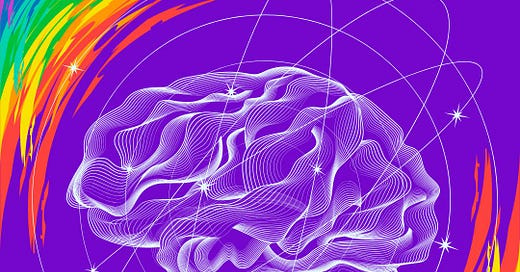What is NeuroDiversity & Why it Matters in Autistic Acceptance Month and All Year Long
Valuing Differences: Role of Neuro-Inclusion in Unlocking Autistic and NeuroDivergent Potential
NeuroDiversity is important in Autistic Acceptance Month because it recognizes and values the diversity of human brains and minds, including those of Autistic People.

NeuroDiversity also acknowledges that Autism is not something that needs to be "cured" or "fixed" but is instead a natural variation of the human experience.
When we embrace NeuroDiversity, we:
Promote acceptance and inclusion
Break down stigmas and stereotypes
Foster a culture of understanding and support
Recognize the strengths and contributions of Autistic and other NeuroDivergent People
Advocate for accommodations and accessibility
Helps to shift the focus from "awareness" to acceptance, celebration, and empowerment
So, What IS NeuroDiversity?
NeuroDiversity: Refers to the idea that there is a natural and broad spectrum of experiences and expressions that occur within the human brain and nervous system (including differences in cognitive, sensory, and emotional experiences), that can vary significantly from person to person.
NeuroDiversity recognizes and celebrates these differences as natural variations of the human experience that should be supported.
Rejecting the idea that Autism and other neurological processing differences (ADHD, dyslexia, dyscalculia, hyperlexia, dyspraxia, and other conditions of the mind) are inherently something bad, NeuroDiversity challenges the society’s widely held views that neurological diversity is “a problem to be solved,” asking NeuroTypical people to examine their biases towards NeuroDivergent people when we show up and interact with the world differently than our peers do (which can cause us to be judged unfairly and inaccurately by those around, us who expect us to act and engage in a neuro-normative way) - as well as systemic barriers that hinder NeuroDivergent success.
In short, NeuroTypical is not the "default state of humanity." It is simply an average our society is designed to cater to.
Judy Singer Didn't "Invent NeuroDiversity" The Concept Was Developed Collectively
This is something it feels important to note, because for a long time, many (myself included) have attributed Judy Singer, who wrote an honors thesis in 1998, to the invention of the term NeuroDiversity and the theorizing of this concept.
However, I've been made aware that Judy's claims as the originator of this theory and term are untrue. Now, I feel compelled to correct the misinformation I inadvertently helped to spread.
Keep reading with a 7-day free trial
Subscribe to NeuroDivergent Rebel’s Substack to keep reading this post and get 7 days of free access to the full post archives.



